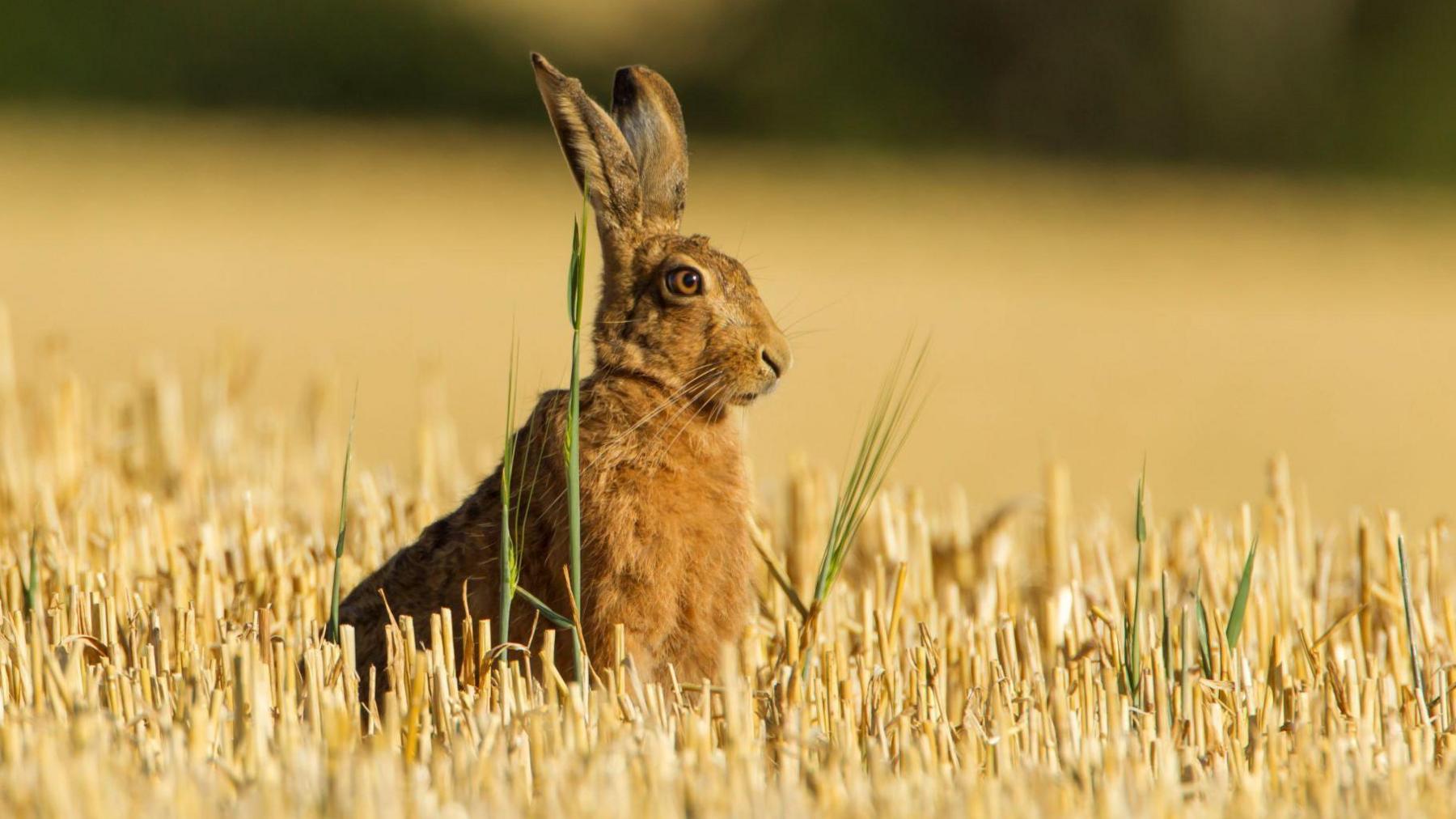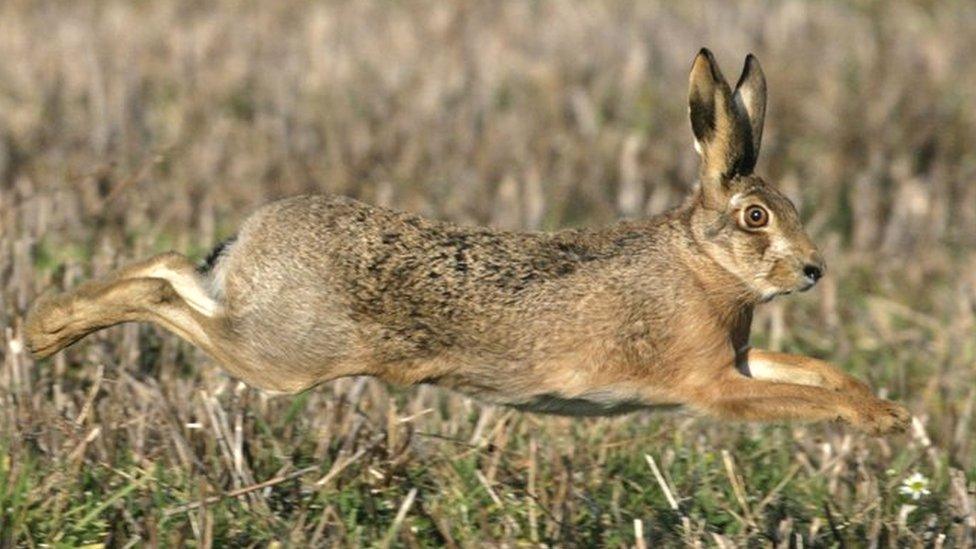Police link rise in hare coursing to early harvest

Hare coursing involves dog being used to chase and kill hares
- Published
An earlier than usual harvest has led to an increase in reports of hare coursing in north-east Scotland, say police.
The illegal activity involves dogs chasing, catching and killing hares on open farmland.
It is most commonly reported after crops have been cut in late summer and before spring, as short vegetation leaves hares with fewer opportunities to hide.
Police Scotland said: "This year's warm summer and early harvest have led to increased reports of hare coursing in recent weeks. Members of the public are being urged to report any suspicious activity, external."
Police said hare coursing was cruel and frequently linked to other crimes such as theft, damage and intimidation.
They said the activity was a cause of concern for landowners, farmers and rural communities.
Police Scotland said: "Hare coursing is primarily a seasonal issue affecting rural communities across our force area.
"It is most common from late summer when the crops are cut through to spring when crops are not grown enough to provide hares with sufficient cover.
"This year, due to an early harvest, we have seen an increase in reports of hare coursing."
Dog ban
In February, a man whose dog attacked and injured a deer became the first person in Scotland to be convicted and sentenced under new hunting legislation.
Nickolas Chenier, 56, was using his golden lurcher for hare coursing when it went after the deer near a cemetery in Wick.
Members of the public tried to protect the severely injured deer, before Chenier appeared and killed the animal with a knife.
He was prosecuted under the Hunting With Dogs Act (Scotland) Act, which came into force in 2023, and fined £750 and banned from owning a dog for five years.
Chenier pleaded guilty at Wick Sheriff Court.
Related topics
- Published6 January 2022
